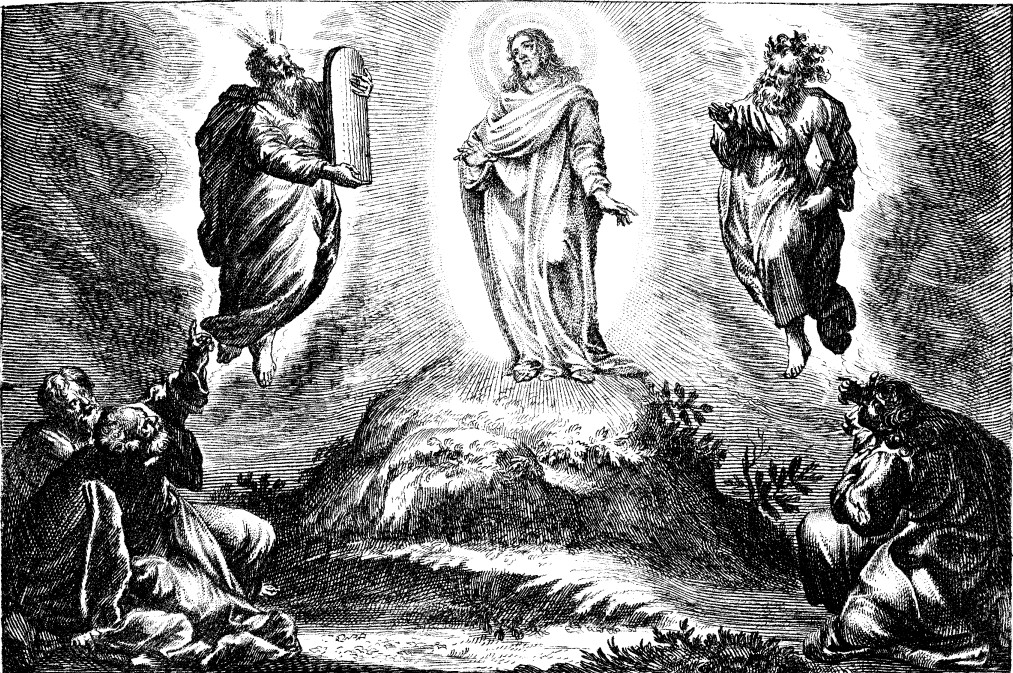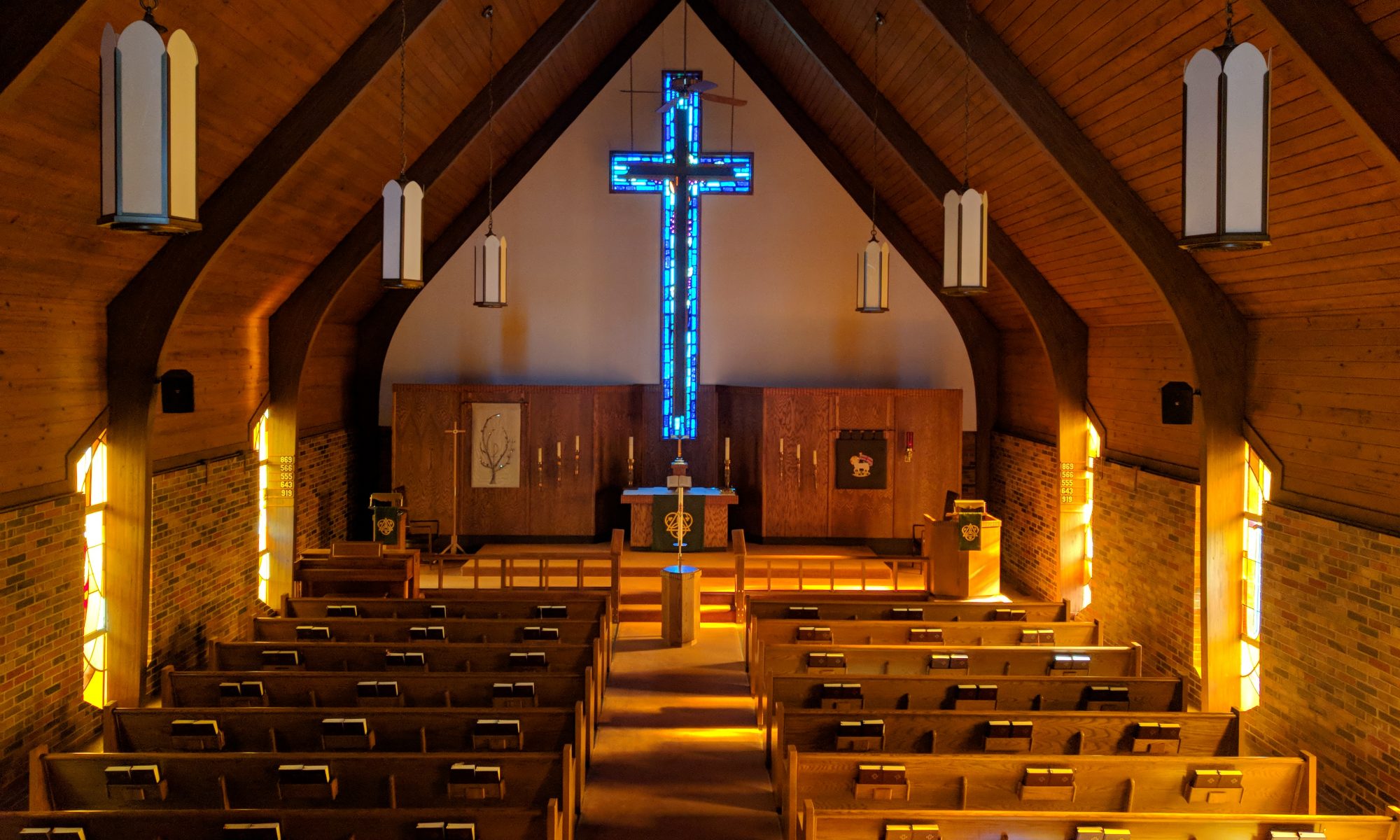
Lessons: Exodus 34:29-35, 2 Peter 1:16-21, Matthew 17:1-9
Hymns: LSB 396, 413, 839, 395, 414
Grace, mercy, and peace to you from God our Father and our Lord and Savior, Jesus Christ. Amen.
The season of Epiphany is short this year because Easter is early, which we will celebrate on March 31. Epiphany ends as we observe the Transfiguration of our Lord. The practice of placing Transfiguration as the final Sunday in the Epiphany season is a Lutheran innovation. If others do it, it is because they have followed us Lutherans. It’s a marvelous practice and a wonderful event to observe because it is the culmination of what Epiphany is all about—the Man Jesus is being revealed as God in the flesh. That is certainly the case when Jesus reveals His glory as His face shines like the sun and His clothes become as white as light while on the mount of Transfiguration with Peter, James, and John. God the Father also spoke, confirming that Jesus is His Son and that God’s people are to listen to Jesus.
Our focus this year as we observe the Transfiguration is on the theme of glory. The word appears many times in the Scriptures, describing the glory of God or teaching us to ascribe glory to our Triune God. Yet, glory is something we tend to claim for ourselves. It is often manifested as pride or boasting. We like to show off our own supposed greatness and abilities. We like to be recognized by men. We want to make names for ourselves. Yet, the Scriptures declare, “The Lord of hosts has purposed it, to defile the pompous pride of all glory, to dishonor all the honored of the earth” (Isaiah 23:9). Jesus Himself said, “If I glorify myself, my glory is nothing” (John 8:54). And God the Holy Spirit teaches us, “He who glories, let him glory in the Lord” (2 Cor. 10:17). How much better it is when we glory in our loving God than in our own selves!
When today’s Old Testament lesson took place, the Israelites were encamped at Mt. Sinai after fleeing Egypt and crossing the Red Sea. They had already received the Ten Commandments and the Book of the Covenant. Moses was the only one allowed to go on Mt. Sinai. Because God located Himself on that mountain, anyone who wandered onto the mountain would die for being in the presence of our pure and perfect God. When Moses was on the mountain for a while and came down from the mountain, his skin shone because he had been talking with God. The people were afraid to come near Moses because of his appearance. So Moses would veil his face.
The glory of the Lord was clearly evident on Mt. Sinai, and Moses reflected that glory. At the Resurrection of all flesh on the Last Day, we will be given glorious bodies, not unlike Christ’s own Body. Our bodies will reflect the glory of God, as we just sang: “With shining face and bright array Christ deigns to manifest today What glory shall be theirs above Who joy in God with perfect love” (LSB 413:3). This glory is borrowed, or received, from God Himself as was the case for Moses who shone from being in the presence of God’s glory.
Despite being able to be in the presence of God, Moses still did not see God face to face. Instead, he once had the opportunity to see God’s back side once. He could not see God’s face, for he remained a mortal sinner. While God prevented his death on the mountain, Moses was not allowed to see the unveiled glory of God, for that would have brought about his death had he seen God in that way.
After leaving Mt. Sinai, the people of Israel began their journey toward the Promised Land. They endured a 40-year detour as they rebelled against God. Even Moses had committed sins which prevented him from entering the Promised Land. So Moses was given a chance to see the land from a mountain from across the Jordan River before he died and was received by God in Paradise.
Under the direction of his successor Joshua, the people of Israel crossed over the Jordan River on dry ground and entered the Promised Land. The name Joshua is based on the Hebrew and the name Jesus is based on same word but in Greek, and the two names have the same meaning, “the Lord saves.” The Lord saved Moses and, while he was not allowed to enter the Promised Land of Israel, he did enter the Promised Land of Heaven. That is made clear at the Transfiguration of our Lord. There, Jesus is met with Moses and Elijah who represent the Law and the Prophets of the Old Testament.
Just as Moses displayed a glimpse of God’s glory and first saw the Promised Land before entering the Promised Land above, so do we. Our Baptism serves as a reflection of the glory we shall receive. The very name of God is placed upon us and we are covered with Christ’s perfect righteousness. God is well-pleased with us when He adopts us into His family by holy Baptism. Instead of seeking so hard to make a name for ourselves, let’s look at the name we have been given in our Baptism. The glorious name of God is placed upon us! We do not need to prove ourselves to others. God is already well pleased with us and has adopted us as His children! We rejoice in having these blessings now. Yet, we will be glorified even more so at the Resurrection.
Gathering in God’s house is entering a type of Promised Land. God dwells with us and makes His presence among us. We receive the abundant blessings of Word and Sacrament. We sing with angels and archangels and all the company of heaven!
When Jesus shone like the sun, He was revealing His divine majesty as the Son of God. St. John would later write, “The Word became flesh and dwelt among us, and we have seen his glory, glory as of the only Son from the Father, full of grace and truth” (John 1:14). This John, along with Peter and James, were with Jesus at the time of His Transfiguration.
The Transfiguration of our Lord confirms without a doubt that Jesus is God, which the Scriptures clearly teach. He shines with glory as only God can do. And so we will sing in our closing hymn, “Tis good, Lord, to be here! Thy glory fills the night; Thy face and garments, like the sun, Shine with unborrowed light” (LSB 414:1).
At night the moon is bright not because it has some power to glow. Instead, it reflects the sun’s light. Full moons always bring much light to our dark nights. And now that we have a layer of snow on the ground, our nights are even brighter. The snow reflects the light. Jesus does not simply reflect the light of God our heavenly Father. Instead, He is the Light. After all, “Jesus is the Light of the world, the light no darkness can overcome” (Evening Prayer, LSB p. 243).
As wonderful as the Transfiguration of our Lord is in which Jesus reveals His glory, there was another place where Jesus would be glorified. On Maundy Thursday, Jesus said, “Now is the Son of Man glorified, and God is glorified in him. If God is glorified in him, God will also glorify him in himself, and glorify him at once” (John 13:31-32). You see, Jesus was going to the cross. That was the discussion Moses and Elijah had with Jesus at His Transfiguration. St. Luke reports that they were talking about His upcoming departure, or more literally, His upcoming exodus which He was about to accomplish at Jerusalem (Luke 9:30-31). He was going to be lifted up on the cross to be glorified.
As Jesus is Transfigured revealing His glory, He was speaking with Moses and Elijah of Calvary—the place where Jesus would be even more so glorified! How amazing is that!
Even as He is whipped and beaten, mocked and crucified, Jesus is still glorified on the cross. “His appearance was so marred, beyond human semblance” (Isaiah 52:14) and “He had no form or majesty that we should look at him, and no beauty that we should desire him… As one from whom men hide their faces He was despised, and we esteemed him not” (Isaiah 53:2-3). For the Lord laid on our Suffering Servant the iniquity of us all (Isaiah 53:6). Yet this is the very place where our Savior is glorified. “Behold, the Lamb of God who takes away the sin of the world!” (John 1:29). Jesus declares, “It is finished!” thereby atoning for all the sins of all people of all time. His righteous act reconciles us to God. Because we are forgiven, we will be able to access God in Heaven and see Him face to face.
We will, in fact, be like our Savior, conformed to His image. It is written in Romans 8:29-30, “For those whom he foreknew he also predestined to be conformed to the image of his Son, in order that he might be the firstborn among many brothers. And those whom he predestined he also called, and those whom he called he also justified, and those whom he justified he also glorified.” Did you hear that? Your Father in Heaven has chosen you to be conformed to the image of His Son., that you may be considered His firstborn. By choosing you, He called you. By calling you with the Gospel, He justifies you. In justifying you by His grace through faith, He glorifies you.
It is simply astounding that God would give us such an honorable status. Yet, that is what God does by His grace. He does so because He loves you and made you the pinnacle of His creation. He does not want to see you die an eternal death suffering in Hell forever; instead, He wants you with Him in Paradise, that you may be glorified. That, my friends, is an astounding privilege granted to you by His grace!
How can you be so certain that these blessings are yours? First, remember the blessings bestowed upon you in your Baptism. Second, listen to the promises of God through His all-sufficient, saving Word. Third, taste and see that the Lord is good to you as you receive the Body and Blood of Jesus at the Lord’s altar. These are no cunningly devised fables. God’s Word is truth, and He sets you free through it. God works saving faith in you as you receive these blessings of God. “The glory of the Lord is risen upon you” (Isaiah 60:1). Amen.
The peace of God which passes all understanding keep your hearts and minds in Christ Jesus to life everlasting. Amen

